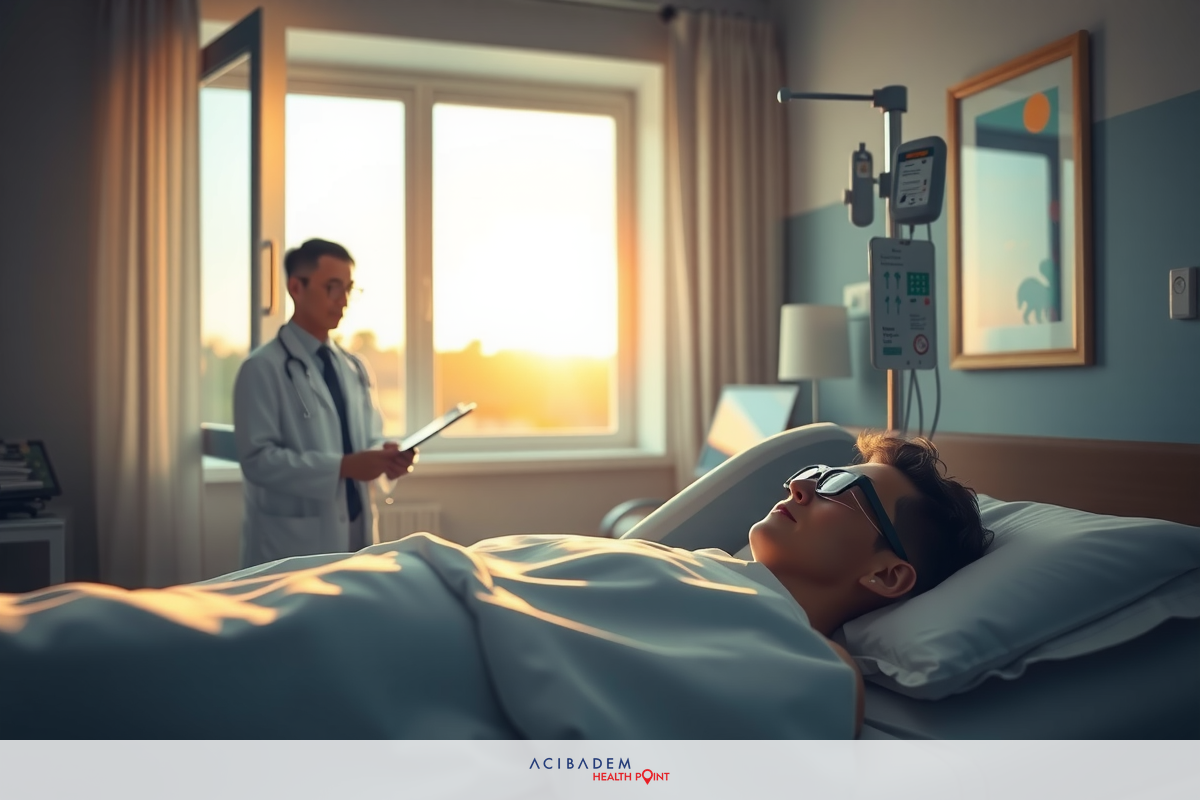What Happens After Laser Eye Surgery
What Happens After Laser Eye Surgery Stepping boldly into the world of clear vision after laser eye surgery can be exhilarating, but it’s necessary to understand what this new phase entails. This period is not only about benefits but also involves vigilant care, precautions and a keen understanding of recovery timeframes.
Post-surgery care heavily depends on how well you adhere to guidelines provided by your health provider. Along with that, comprehending the whys and hows allows for better patient satisfaction and comfort levels during recovery. Understanding potential discomfort scenarios post-surgery might also ease apprehensions about common side effects associated with this type of eye operation.
Immediate Post-Op Care
Immediately after laser eye surgery, certain aspects of care are cardinal to a successful recovery. The sensation in your eyes during this phase can differ from mild discomfort or scratchiness to a burning sensation but it’s part of the natural healing process. A crucial element is the judicious use of prescribed eye drops, which aids in preventing dryness and inflammation while promoting healing.
Understanding that direct sunlight could pose risks is relevant— wearing sunglasses outside becomes indispensable for at least one week post-op. Additionally, protecting the eyes while sleeping by using special goggles can be advantageous as it thwarts chances of accidental rubbing or poking which might disrupt the surgical correction. Remembering these facets along with maintaining cleanliness around your eyes will pave way for an uncomplicated route towards vision restoration following your laser eye surgery.
Recovery Timeline
Recovering from laser eye surgery is not a uniform process for everyone due to varying factors such as individual health conditions, type of surgery and adherence to aftercare guidelines. In most scenarios though, the initial healing period usually spans over seven days post-surgery. During this phase, intense focus on preventive care like no use of make-up or avoiding swimming can thwart potential infection risks.
It’s critical to understand that total recovery and stabilization might span up to three months. Visual acuity tends to improve within the first few weeks however noticing minor fluctuations in vision could be part of normal recuperation trajectory owing to corneal remodeling – a pivotal component in advanced vision correction procedures such as LASIK. Regular follow-ups with your ophthalmologist during this period will enable accurate tracking of recovery progress thereby leading towards successful recuperation following your laser eye surgery.
Managing Discomfort
After undergoing laser eye surgery, a degree of discomfort during recovery is expected but its management lies significantly in your hands. Postoperatively, patients often report gritty sensation or tearing which tends to subside within the first week via utilization of prescribed lubricating and anti-inflammatory eye drops. Dryness being one of the more persistent side effects can be attended to by using artificial tears throughout recuperation period.
The manifestation of minor visual fluctuations such as glare or halos especially at night might cause initial concern but their presence usually diminishes considerably over time with consistent care routines. Also maintaining ample rest helps accelerate healing while avoiding activities where eyes could get strained like excessive reading or screen time consumption would ease the comfort levels during sight correction postsurgery phase. Remember that adherence to aftercare instructions catalyzes improved comfort amid your journey towards sharper vision following laser eye operation.
Follow-up Appointments

In the days following laser eye surgery, scheduled follow-up appointments form an integral part of your recovery journey. Typically slated for the day after surgery initially, this provides a comprehensive check opportunity whereby your surgeon assesses healing progress in addition to adjusting medication routines if necessary. Attending these appointments regularly bolsters the likelihood of achieving optimal visual outcomes post-surgery.
The split between a speedy and fully effective recovery often resides in carefully noting any changes or discomfort that could be indicative of complications and discussing them with your surgeon during followups. Being candid about symptoms you’ve experienced coupled with seeking advice on issues like resuming work or recreational activities aids not only proper management but also ensures expectations alignment regarding vision refinement post-operation period. Never undermine the power vested in regular medical consultations – their value lies at heart of success achieved by laser eye surgery procedures.
Frequently Asked Questions
Q: How soon after laser eye surgery will my vision improve? A: Most patients report noticeable change within 24-48 hours post-operation, but full results usually unfold over several weeks.
Q: Can I go back to work the next day after surgery? A: It varies with individuals and their specific job’s visual demands. A safer suggestion would be taking a few days off to prioritize recuperation.
Q: Are there any restrictions on activities following laser eye procedure? A: Yes, you must avoid strenuously physical activities for at least two weeks. Protective eyewear while stepping outdoors becomes mandatory in the first week to safeguard against potential risks from sunlight.
This article is meant solely for providing general information and does not substitute professional medical advice under any circumstance. Always consult your healthcare provider with questions about personal health or medical conditions.








